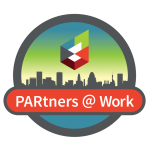Bridging the Gap: The Intersection of Association Education and Higher Learning

By Carolyn Shomali
Study after study agrees – professionals want educational opportunities from their associations. But the array of available formats ranging from credentials to micro-credentials, webinars, and cohorts often leaves associations uncertain about the best options to offer.
The solution is to focus less on the learning constructs and more on the pivotal role associations play within the educational ecosystem.
“A professional association in any industry sits at the confluence of being the authoritative body on the skills necessary for that industry and the connectivity to enterprise and workers that help translate that skills taxonomy to workforce development,” says Josh Slayton, Chief Growth Officer for Holmes Corporation, a long-time partner to leading associations that helps build, support and scale certification programs and other related products. “That taxonomy should be the connective tissue on everything from entry level education to ongoing career advancement to corporate assessments that evaluate the skill sets of their employees.”
Viewing themselves through this lens allows associations to not only enhance their membership and non-dues revenue but also strengthen the very foundation of their industries – the workforce. And according to recent data, there is an opportunity for associations to improve it.
The U.S. Chamber of Commerce Foundation reports that 74 percent of hiring managers cite a lack of skilled talent available to fill positions, resulting in skill deficiencies in critical industries like cybersecurity, manufacturing, engineering and health care. And in a recent Gallup poll, just 11 percent of business leaders said college graduates were effectively prepared for the workforce.

We think PAR’s association partners do some pretty great work! In our “PARtners at Work” series, we highlight the different ways they are impacting our association communities. Holmes Corporation (HC) has more than 50 years of experience developing and delivering exceptional educational products to serve individuals worldwide seeking professional credentials and certifications.
The reason for the lack of preparedness is due in part to declining college enrollment and also a growing disconnect among higher education and corporations, but Slayton says the reality is clear.
“We have failed as a society, especially over the last fifty years, to meet the needs of the workforce. We have designed an educational system that incentivizes and pushes people towards traditional post-secondary which is still how many people think about the capstone and the bridge to a career.”
So, how can associations be part of the solution?
Slayton says associations must recognize this educational shift, leverage their expertise and partnerships to develop and convey industry knowledge, and enhance accessibility to alternative learning pathways for a diverse group of learners.
Whether it is partnering with higher education programs to create or align curriculums, embedding credentials into degree programs, or partnering with institutions to offer standalone credentials, associations can serve as the conduit between industry needs and the future workforce.
“I think there is a shift and recognition that there needs to be different ways to go about learning and preparing for a career,” Slayton says. “Colleges and universities have strengths, and associations have strengths. Working together can help both better align with the needs of tomorrow’s workforce. A lot of times, associations have content that has been developed and it just needs to be productized, while colleges and universities are still a great conduit to people that are seeking learning towards a career, and need broader student support.”
A recent Holmes Corporation partnership illustrates how this educational ecosystem between an association, institution and corporation can work effectively.
Ivy Tech Community College, located in Indiana, has partnered with a local manufacturing company to create a Human Resources apprenticeship program to help upskill staff and fill entry-level HR roles. As part of the apprenticeship, Ivy Tech delivers HR training based on the SHRM Learning System, a SHRM certification prep product built and delivered by Holmes Corporation. Employees enrolled in the apprenticeship program access HR training at minimal to no cost, elevate their HR knowledge and skills, and prepare to earn a leading industry-recognized credential from SHRM. In addition, Ivy Tech provides retroactive educational credit to those who pass the certification, counting towards an Associate’s degree if the individual chooses that path.
The employer also benefits by increasing retention rates and filling a staffing void for their growing company. SHRM’s framework, as the key industry authority, plays a critical role in bringing market validation to programs like these.
"You have all these different players as part of the ecosystem that's leading to great results. Employees come out with a new skillset, career advancement, increased confidence, and a leading industry certification," Slayton says.
With only 41 percent of association leaders reporting training and certification programs as a prioritized revenue stream, there's clear potential for revenue growth and industry influence through education. By partnering with colleges and universities, associations can strengthen their industries while solidifying their positions within them.
“Learning is a collection of knowledge, and credentials and certifications are an organization of that knowledge. Associations shouldn't do it alone because there are partners out there that can provide great help to organize and develop content and then reach the market to deliver that content.”

About Holmes Corporation
Holmes Corporation (HC) has more than 50 years of experience developing and delivering exceptional educational products to serve individuals worldwide seeking professional credentials and certifications. We are proud to have helped more than 2.1 million professionals in 200 countries advance their careers through credential preparation. We accomplish this through long-term partnerships with leading associations. We help to build, grow and scale their certification programs through the creation and distribution of premium quality learning systems. We are now broadening our solutions to serve the learner’s career journey, including enterprise skill assessments, member engagement, and recertification products, all leveraging an industry’s core skill taxonomy.